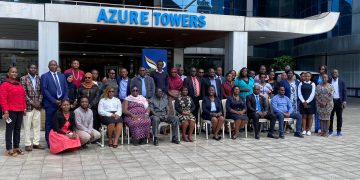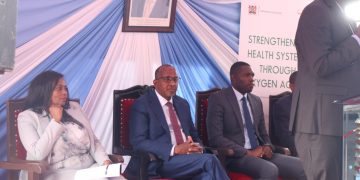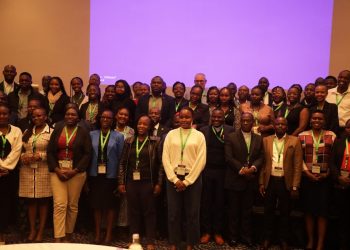By Ivyn Kipruto
The Davos Alzheimer’s Collaborative (DAC) and the Science for Africa Foundation (SFA Foundation) launched a new initiative to harness artificial intelligence (AI), big data, and digital technologies to improve brain health across Africa.
Speaking at the ongoing Data.Digital.AI for Brain Health Across Africa roundtable series, Dr Vaibhav Narayan, Executive Vice President of DAC, said ,Africa faces a growing burden of dementia and other neurological conditions, compounded by limited access to early detection tools, specialist care, and caregiver support. Advocates say AI could provide scalable solutions to these gaps.
“AI holds transformative potential for brain health. From improving early detection and diagnosis to enabling scalable caregiver support, AI can extend expert care to remote communities, provide continuous monitoring, and deliver personalised interventions that ease caregiver burden.”
Data.Digital.AI for Brain Health across Africa, a multi-stakeholder platform designed to explore how digital innovation can transform the prevention, diagnosis, and treatment of dementia and related brain conditions.
The effort aligns with the priorities of the South African-led G20 Health Working Group, which has placed health equity and the responsible use of AI at the center of global health discussions.
By applying digital technologies to brain health, the collaboration hopes to lower barriers to access while building stronger, more resilient health systems.
Research by the SFA Foundation, spanning 43 countries, underscores both the promise of AI in genomics, diagnostics, and pandemic preparedness, and the risks of worsening inequality if governance frameworks are not carefully designed.
“AI presents a significant opportunity for advancing brain health across Africa,” said Uzma Alam, Policy Engagement Lead at the SFA Foundation. “But this potential can only be realised if governance frameworks reflect Africa’s realities, empower vulnerable populations, build trust, and ensure ethical and equitable use of data. Only by centering African voices can we design inclusive and effective solutions.”
To ground the process in local perspectives, DAC and the SFA Foundation have launched a stakeholder survey across the continent.
The Insights from the survey will inform the AI roundtables and shape a continent-wide action plan, to be presented at the G20 Brain Health convening on November 4, 2025, where the two organizations will serve as co-conveners.
The initiative has also drawn attention to the role of policymakers in advancing AI adoption. Dr Adewale M. Aderemi, Director of Democratic Studies at the National Institute for Legislative and Democratic Studies (NILDS), described AI as a “crucial, timeous, and game-changing intervention” for Africa.
“It has the potential to blur the technological gap between Africa and the rest of the world, making the continent more competitive,” Dr Aderemi emphasised. “In mental health particularly, AI could help overcome long-standing challenges, nurture Africa’s youthful social capital, and boost productivity. I hope Africa’s political class recognises this and prioritises it as a matter of policy.”
The roundtable series builds on the work of the Africa Task Force on Brain Health, recently published in Nature Medicine. The Task Force is advancing strategies to position brain health at the center of Africa’s health agenda, bringing together leaders from regional economic blocs to design responsive, locally grounded action.
The effort is also being advanced in collaboration with Research Enterprise Systems (RES), an Africa-based hub that supports secure, ethical, and equitable use of digital research infrastructure. Together, these partnerships aim to ensure that the AI-driven brain health agenda is shaped by African expertise and rooted in local contexts.
The Data.Digital.AI for Brain Health Across Africa roundtable series will serve as a platform to share evidence, align regional perspectives, and shape solutions tailored to Africa’s diverse populations. Stakeholder input will directly inform a comprehensive action plan, which will be unveiled at the G20 Brain Health convening in November 2025.















